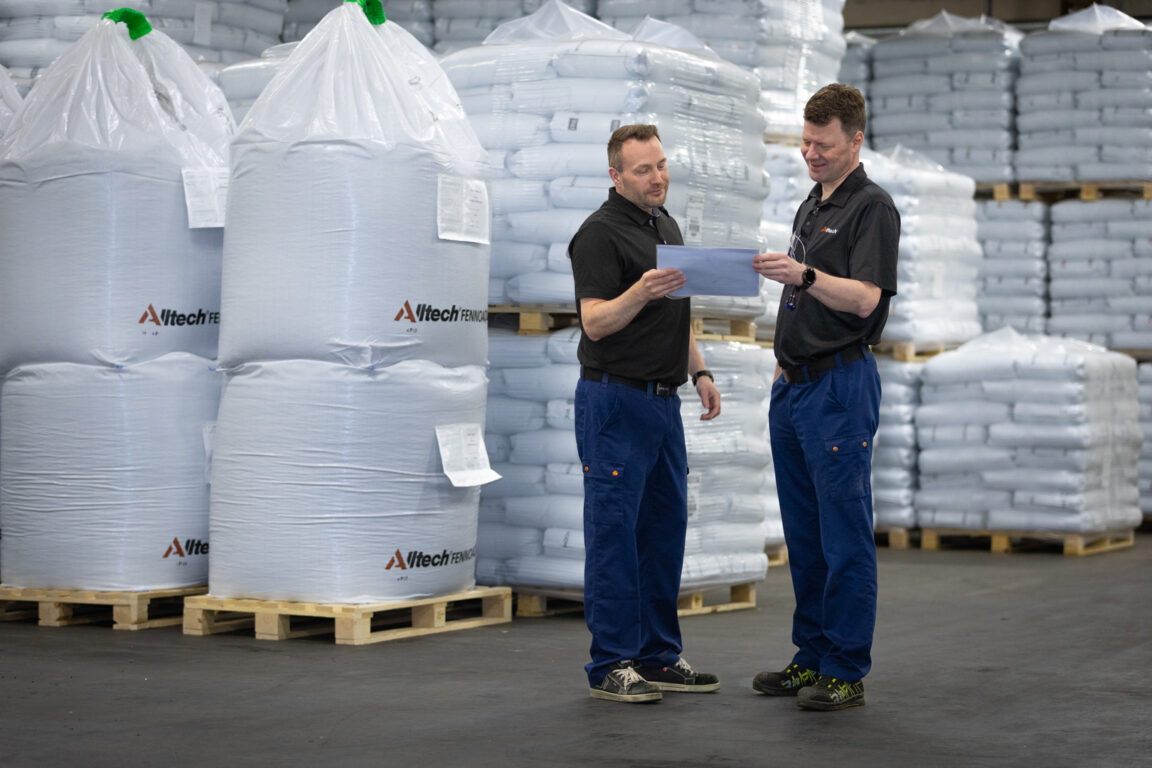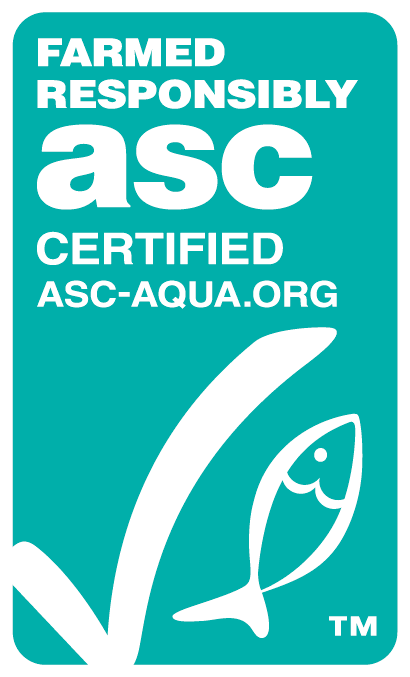Fennoaqua’s feed production now ASC certified

The international Aquaculture Stewardship Council awarded Fennoaqua ASC certification on October 2, 2025. The certification demonstrates that Fennoaqua’s feed production meets the rigorous ASC standards, ensuring a responsible and environmentally friendly fish farming production chain. An independent third party, the international auditing service provider DNV Business Assurance, conducted the audit.
 “There is demand in the global fish market for products whose sustainable and responsible production can be demonstrated to consumers through standardised certifications such as ASC. Thanks to the certification process we have just undergone, we will be able to continue supplying feed to all ASC-certified farmers even after the new, stricter requirements come into force in October”, says Fennoaqua’s Development Manager Susanna Airaksinen.
“There is demand in the global fish market for products whose sustainable and responsible production can be demonstrated to consumers through standardised certifications such as ASC. Thanks to the certification process we have just undergone, we will be able to continue supplying feed to all ASC-certified farmers even after the new, stricter requirements come into force in October”, says Fennoaqua’s Development Manager Susanna Airaksinen.
After October 2025, fish marketed as ASC-certified may only be fed with feed produced in an ASC-certified fish feed factory. Fennoaqua’s new certification guarantees that ASC-certified farmers can continue or start working with us with confidence.
“The certification also increases transparency in the eyes of other customers and further confirms the responsibility of our operations. A third party has now confirmed everything we have been talking about over the years”, Airaksinen points out.
A long and demanding application process
The ASC standard is very comprehensive and detailed, so internalising and implementing it took time and effort. The certification encompasses all the fish feed factory’s operating practices in terms of regulatory compliance and responsibility, from both a social and environmental perspective. It places great importance on the responsibility of raw material procurement, which also extends to international operators and their operating practices. A comprehensive risk assessment (due diligence) in accordance with ASC requirements was conducted for all raw materials and their suppliers, mapping social, legal, and environmental risks on a product and supplier basis.
“The risk assessment required comprehensive information from suppliers, which posed challenges as not all our suppliers were yet familiar with the ASC standard requirements. In the same process, we updated the ethical principles of the suppliers (Supplier Code of Conduct) to comply with ASC requirements, and processes related to production and personnel were also reviewed and documented in greater detail”, says Fennoaqua’s Procurement Manager Marika Siivola.
“The ASC standard and its interpretation required in-depth familiarisation with the subject. Fortunately, we received help at various stages from the experts at Envitecpolis, a food chain specialist company, as we would not have been able to manage this entirely on our own alongside our other work. All background information had to be complete and independently evaluated. We had to deepen our already responsible practices by collecting concrete documentation on them”, says Airaksinen.
Continuous monitoring and improvement
The audit round we have just completed will not be a one-off, as the certificate commits us to continuous improvement and reporting.
“Audits will continue to be conducted annually to ensure that our operations remain in line with the ASC standard. Certain aspects need to be improved on an ongoing basis, such as the proportion of certified fish-based raw materials in our feed, and these improvements must also be verifiable”, Siivola points out.
Continuous review and improvement of operations is a natural part of Fennoaqua’s activities, but the constantly changing global situation poses challenges.
“In a certain sense and strictly interpreted, the ASC standard is very inflexible, as there are many variables that are beyond our control and depend on the global situation. It remains to be seen how such external fluctuations will be addressed”, Airaksinen ponders.
Certification confirmed that responsibility is at the core of Fennoaqua
During the certification process, it became clear that responsible practices and principles are well integrated into Fennoaqua’s operations. For example, we did not need to change our practices in terms of supply chains; instead, we only needed to improve our documentation.
“However, it has been a considerable effort for us, and we can be proud of that. The workload is getting lighter with each round, and of course, this has also been a learning process for us in many ways”, Airaksinen sums up.